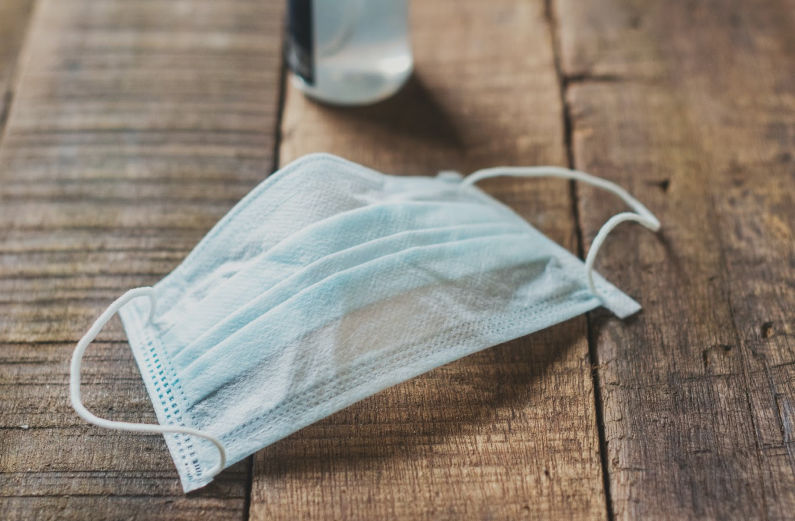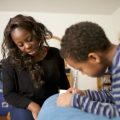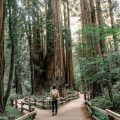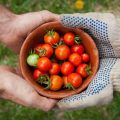There are things to be learned from living through a pandemic. Aside from the obvious things that are discussed daily in the news and on social media, there are observations to be made that can change the way we see ourselves and how we worship. Be patient with me for a few moments while I put into words some of my observations. I promise there is a point to be made in the end that helped with my personal spiritual growth.
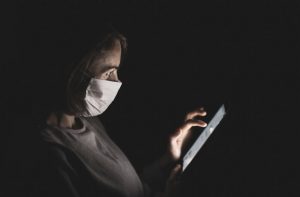 The biggest observation I have made is that there are many ways to deal with things we can’t see. Unless you are a scientist in a laboratory working with microscopes, you have never seen the COVID-19 virus. This terrifying and deadly virus is out there, but we don’t know where it is, how to get rid of it, or even avoid it. We listen to all the news reports, gather as much information as we can, and then form our own opinions as to how to protect ourselves and our families. Our way of protecting ourselves often does not look like how our neighbors protect themselves and, unfortunately, we form opinions about that, as well.
The biggest observation I have made is that there are many ways to deal with things we can’t see. Unless you are a scientist in a laboratory working with microscopes, you have never seen the COVID-19 virus. This terrifying and deadly virus is out there, but we don’t know where it is, how to get rid of it, or even avoid it. We listen to all the news reports, gather as much information as we can, and then form our own opinions as to how to protect ourselves and our families. Our way of protecting ourselves often does not look like how our neighbors protect themselves and, unfortunately, we form opinions about that, as well.
Allow me show you some things I’ve seen in my travels. Again, I promise to tie this up at the end.
As restaurants opened for curbside and takeout service, they were all very diligent to protect customers and employees. Masks were worn and gloves were used. Cleaning was apparent from the smell of disinfectant wafting from drive-through windows. However, each restaurant manager had his or her own idea of how to clean and how to protect.
We went through one drive-through window where the employee was wearing a mask and gloves. She took our money and as she handed me the change, I noticed big black spots on the blue gloves from handling dirty money. She didn’t just place my change in my hand, she touched my hand with the dirty glove. (Yes, I sanitized afterwards.) This particular restaurant’s policy for passing food through the window was for the employee to put the food in a plastic box and hold it out the window for you to remove the food. It was a great idea—except those same black gloves poured our drinks, placed lids on the cups, and placed them into that plastic box.
As restaurant dining rooms have begun to open in our area, we’ve noticed how everything is clean and sparkly. In a couple of restaurants, the smell of disinfectant is so strong it is actually not very appetizing, but they are being diligent about protecting us all. The method of cleaning, however, is also important. The other day, I watched an employee wipe down the front counter with disinfectant. She then moved to the doors and wiped down the handles. Then, using the same rag, wiped down a table. On our way out, the manager happened to be up front, so I asked him if I could share a “teaching moment.” He was horrified, said he would handle it immediately, and was talking to the employee as we left the building.
Everywhere we go, from grocery stores to restaurants to the bank, masks are being worn underneath the chin, underneath the nose, or hanging from one ear. I watched someone on television being interviewed in a mask. He was trying to follow protocol by wearing a mask, and he was being diligent to protect those around him. Our faces are all different shapes and sizes. About every 8-10 words he spoke, the mask slipped down beneath his nose, and he would reach up and adjust it with his hands—hands which are impossible to keep clean no matter how much soap, water, and hand sanitizer is used. (In the interest of full disclosure, I can’t wear a mask, as I get extremely lightheaded. I’m afraid I will pass out—especially in triple digit summer heat. As I said, we all protect ourselves and others the best way we can. I am not judging this man, as he truly was trying to be diligent.)
The problem is that we can’t see this deadly virus. We assume that we are protecting ourselves and others because we are cleaning, masking, and gloving—but because we can’t actually see the virus, we have no idea what we are doing. To make matters worse, we are critical of others and even make unkind remarks for their actions dealing with the unseen and unknown.
This week, I’ve thought about what else in our lives is unseen. I can’t see the Holy Ghost, but I know He is there. I, personally, have never seen my Heavenly Father, but I know He is real. I’ve never seen my Savior, Jesus Christ, but His presence has been felt. How am I dealing with the unseen?
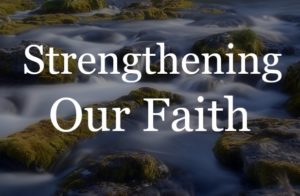
To read more of Tudie’s articles, click here.
While a pandemic requires cleaning surfaces, relationships with the Godhead requires cleaning my actions—my life. How am I doing? What methods am I using? Am I cleaning, or spreading trouble? Have I made spiritual growth, or am I stagnating? Am I protecting myself and my family, or living under a false sense of security? In a manner of speaking, do I have stains on my gloves? Am I wiping my sins with a dirty rag? Am I contaminating the masks of protection—the scriptures, the temple experience, the Sabbath?
My observations of pandemic cleansing for an unseen virus have taught me that my spiritual growth may be stunted by a false sense of security because my methods may not be correct. Do I read the scriptures for enlightenment and understanding, or do I read simply because that’s what I’ve been told to do? Am I keeping the Sabbath day holy simply by not shopping on Sunday, or am I really studying, contemplating, pondering, and worshipping? On what level is my personal spiritual growth? I hope that I won’t stagnate in my spiritual growth with the wrong methods for cleaning up my life. The only truly effective spiritual cleansers are obedience and repentance.
Tudie Rose is a mother of four and grandmother of ten in Sacramento, California. You can find her on Twitter as @TudieRose. She blogs as Tudie Rose at http://potrackrose.wordpress.com. She has written articles for Familius. You will find a Tudie Rose essay in Lessons from My Parents, Michele Robbins, Familius 2013, at http://www.familius.com/lessons-from-my-parents.

